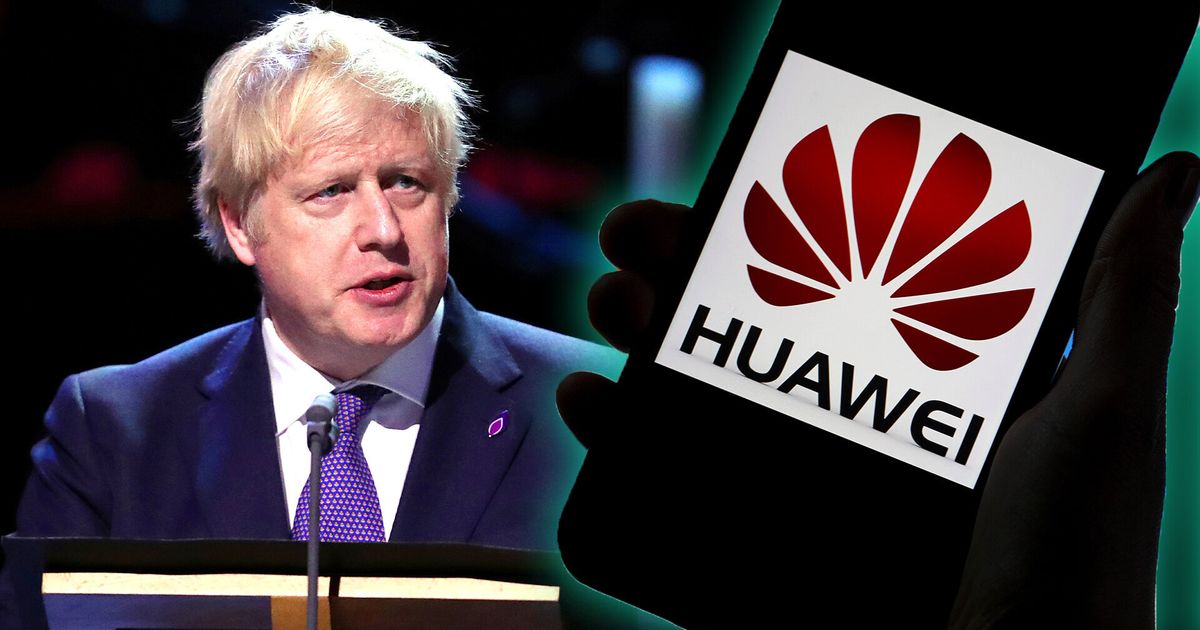Sajjad Alizadeh, in an interview with the website of the Strategic Council on Foreign Relations, stated that relations between the United States and the United Kingdom are classified under the category of “strategic relations”. He said these relations are interconnected by strategic links that cannot be deeply affected by political events and challenges. Therefore, the Huawei challenge cannot have a serious impact on the relationship between Washington and London, as the relationship between the two countries is strategic.
Referring to some of the analyses that took into account the similarities between Trump’s and Johnson’s policies and Trump’s support for Brexit forecast closer relations between the two sides, he said: “It is true that Johnson is known as the Trump of Britain and has differences with his predecessors, but the structure of the British Premiership is so intransigent that he must act within the same structures for the benefit of the UK. Huawei’s partnership with Britain, which began in earnest at the time of Theresa May and deepened in Johnson’s time, is regarded by many experts in the national interest of England, not the United States.
US Monopoly in Communications Infrastructures Is Over!
Citing some criticism by US officials that the West’s security would be jeopardized if Europe cooperates with Huawei, the analyst said Huawei which is active in infrastructure and communications technologies, has the potential to break the monopoly of the American companies in the field. The United States has so far been able to provide accurate data from around the world with its communications centres and policymakers because these bottlenecks were available to the US, but today this monopoly seems to be in its final days.
Breaking US Monopoly, Main Reason for Opposing Huawei
Alizadeh emphasized that the trade war with China was always one of Trump’s first targets for harming Huawei, adding: “Huawei with up-to-date technology seeks to break the US monopoly on infrastructure communications and this is the most important reason the US is sensitive to UK collaboration with the company. Concerning security and intelligence issues that are raised they are media charge, not a real issue, at least in the short and medium terms.
Emphasizing that cooperation with Europe is very important to Huawei, he pointed to the positions of Huawei chiefs who said they understood their partners’ security concerns and could take action to address those concerns persuasively.
Alizadeh explained: The British Foreign Intelligence Service was in agreement with Trump at the outset of discussing cooperation with Huawei, as the company may have espionage issues, but over time they changed their minds and now believe they should not be deprived of this technology. We must, and if possible, spy on it with appropriate measures.
British Attempt to Break American Monopoly
“It looks like Britain is trying to break the US monopoly for economic and commercial reasons, and at the same time get better technology at a lower cost and political advantage,” he said. The US hand is too short to offer alternative communications to England in the short term, and Britain has defined its national interest in using Huawei’s capabilities.
Referring to the US Vice President’s remarks that the deal with Huawei could jeopardize a trade agreement with Britain, he said: “Given the characteristics of the British-American strategic relationship, technological cooperation with Huawei does not split the course of action of UK and US because boosting common interests in many areas has overshadowed the types of foreign relations between the two countries.
Alizadeh, however, cited some analyses that Johnson’s numerous and failed trips to the United States had frustrated Britain with striking specific agreements with the United States, though that cooperation may see some cross-sectional and short-term tensions if the UK-Huawei cooperation continues but in the long run there will be no particular problem in these relations. Britain is so much in favour of US foreign policy that one of the European parties at a post-Brexit meeting had said that the “United States of EU left us”.
Referring to Trump’s threat to suspend intelligence cooperation with Britain if it cooperates with Huawei, he said “There is a structure in the security system of Britain, America, Canada, New Zealand and Australia along with three other countries called Five Eyes,” he said. The US-based information-security exchange centre is among the five countries.
Given this very serious security relationship, the US is unlikely to completely disrupt intelligence cooperation, but what is most likely to happen at its pessimistic level is that there will be some restrictions in the way of security cooperation to punish Britain.
Alizadeh emphasized that the United States views Britain as its own “lap dog”: Complete information sharing is not possible because it is part of a strategic partnership and relationship, and it means the loss of a strategic partnership that cannot be imagined.
Postponement of Johnson-Trump Summit to Press England
The international affairs expert, referring to the postponement of the US-British summit by the end of the G7 summit in June said: The postponement of the Johnson-Trump meeting is part of a comprehensive plan to press the United States to suspend cooperation with Huawei. However, for now, the analysis is that England will not change its mind. British statesmen are the most diplomat of their kind, trying to overcome this challenge as well. They want to gain from working with Huawei and reduce their negative impact on bilateral relations with the United States.










0 Comments